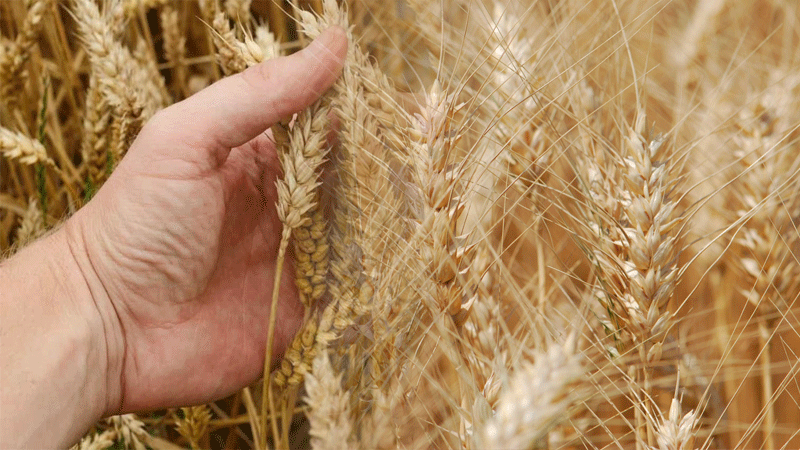The Wheat Revolution is focusing on improving the nutritional value of wheat. Wheat is a good energy source but lacks essential nutrients such as iron, zinc, and vitamins.

The world population is increasing daily, and the demand for food is rising. Wheat is one of the most important crops globally, with over 750 million tons produced each year. It is a staple food for millions, and its production is essential for food security. However, wheat production is under threat due to climate change. Rising temperatures, droughts, and extreme weather events affect crop yield, quality, and nutritional value. To dive into the challenges posed by climate change, scientists and farmers are collaborating to create a “Wheat Revolution.”
This revolution is driven by science and technology and aims to develop new wheat varieties that are more resilient to climate change, have higher yields, and are more nutritious.
One of the critical innovations in the Wheat Revolution is genetic modification. Scientists are using genetic engineering to create wheat varieties more resistant to pests, diseases, and extreme weather conditions.
For example, researchers have developed wheat varieties that can grow in salt-affected soils that were previously unusable for agriculture. This technology is helping farmers grow crops in areas where traditional crops cannot grow due to soil salinity.
Another innovative technology being used in the Wheat Revolution is precision agriculture. Precision agriculture uses data and technology to manage crops more efficiently. Farmers can use sensors, drones, and other technologies to monitor their crops’ growth and health.
This information can help them make informed decisions about fertilization, irrigation, and pest control, which can improve crop yields and reduce environmental impacts.
For example, precision agriculture can help farmers use water more efficiently by only irrigating when necessary, reducing the amount of water used in agriculture.
The Wheat Revolution is also focusing on improving the nutritional value of wheat. Wheat is a good energy source but lacks essential nutrients such as iron, zinc, and vitamins.
Researchers are working to develop more nutritious wheat varieties to improve the health of people who rely on wheat as a staple food. For example, researchers have developed wheat varieties higher in iron and zinc, which can help reduce malnutrition in developing countries.
In addition to scientific advancements, the Wheat Revolution promotes sustainable farming practices. Sustainable farming practices conserve natural resources, protect the environment, and maintain economic viability.
For example, farmers can use conservation tillage, which reduces soil erosion and improves soil health. They can also use cover crops, improving soil fertility and reducing pest and disease pressure. Sustainable farming practices help farmers adapt to climate change and contribute to a more sustainable food system.
The Wheat Revolution is not just a theoretical concept. It is already making a difference in the lives of farmers and consumers worldwide. For example, in Bangladesh, the International Maize and Wheat Improvement Center (CIMMYT) and its partners developed a new wheat variety called BARI Gom-33.
This variety is resistant to a devastating fungal disease called wheat blast, spreading in South Asia in recent years. By adopting this new variety, farmers in Bangladesh can protect their crops from wheat blasts and improve their yields.
The Wheat Revolution is also helping farmers in Mexico, where CIMMYT is based. Farmers in Mexico face water scarcity, exacerbated by climate change. CIMMYT and its partners have developed a new wheat variety called CML 495.
This variety is drought-tolerant, meaning it can grow with less water. By adopting this new variety, farmers in Mexico can continue to grow wheat despite water shortages, helping them maintain their livelihoods and food security.
The Wheat Revolution is not without its challenges, however. One of the biggest challenges is accepting genetically modified (GM) crops. GM crops have been controversial, with some people concerned about their safety and environmental impacts.